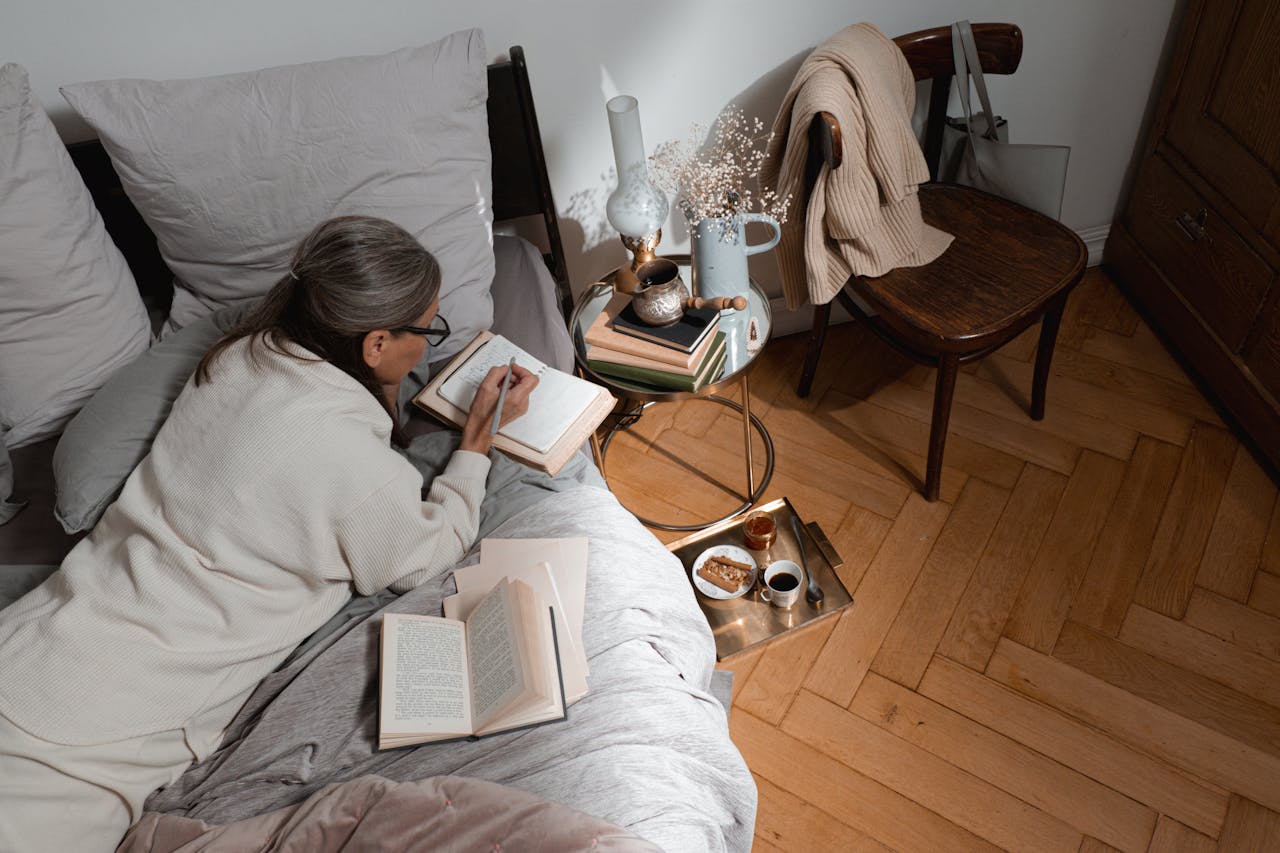7 Expert Sleep Tips for Boomers: How to Get Better Rest Tonight

As we age, a good night’s sleep often feels more elusive than ever. If you find yourself tossing and turning instead of drifting off peacefully, you’re not alone. Many of us experience changes in their sleep patterns, but there are effective strategies to help you reclaim those restful nights. Here are seven expert-backed tips to help you improve your sleep quality tonight!
1. Establish a Consistent Sleep Schedule

One of the simplest yet most effective strategies for better sleep is establishing a consistent bedtime and wake-up time. Dr. Sarah Johnson, a sleep psychologist, emphasizes the importance of creating a routine. “Going to bed and waking up at the same time every day helps regulate your body’s internal clock,” she explains.
Tip: Try to stick to your sleep schedule even on weekends. This consistency helps your body anticipate when it’s time to wind down and when it’s time to wake up, making it easier to fall asleep and wake refreshed.
2. Create a Sleep-Inducing Environment

Your bedroom should be a sanctuary for sleep. Dr. Michael Smith, a sleep specialist, suggests making your sleeping space as comfortable as possible. “Keep the room dark, quiet, and cool,” he advises.
Tip: Consider using blackout curtains, earplugs, or white noise machines to eliminate disturbances. You might also want to invest in a comfortable mattress and pillows that support your sleeping position.
3. Limit Screen Time Before Bed

In today’s digital age, screens are everywhere, but they can be detrimental to your sleep quality. Dr. Emily Chen, a neuroscientist, notes that the blue light emitted by phones, tablets, and televisions can interfere with your body’s production of melatonin, the hormone responsible for sleep.
Tip: Aim to turn off electronic devices at least an hour before bedtime. Instead, engage in relaxing activities like reading a physical book, meditating, or enjoying a warm bath.
4. Be Mindful of What You Eat and Drink

What you consume in the hours leading up to bedtime can greatly affect your sleep quality. Nutritionist Linda Patel suggests being mindful of your diet. “Heavy meals, caffeine, and alcohol close to bedtime can disrupt your sleep cycle,” she explains.
Tip: Try to finish eating at least two to three hours before bed. If you’re hungry, opt for a light snack, such as a banana or a small bowl of oatmeal. Herbal teas, such as chamomile or peppermint, can also promote relaxation.
5. Incorporate Relaxation Techniques

Stress and anxiety are significant sleep disruptors, especially for boomers navigating life changes. Integrating relaxation techniques into your nightly routine can help. Dr. Robert Lewis, a clinical psychologist, recommends practices like deep breathing, progressive muscle relaxation, or gentle yoga.
Tip: Consider setting aside 15-30 minutes each night for relaxation. You could try guided meditation apps or YouTube videos focused on sleep. Finding what works for you can make a world of difference.
6. Stay Active During the Day

Regular physical activity is crucial for better sleep, as it can help you fall asleep faster and enjoy deeper sleep. Dr. Anna Carter, a fitness expert, states, “Even moderate exercise, like walking, can significantly improve your sleep quality.”
Tip: Aim for at least 30 minutes of physical activity most days of the week. Just be sure to complete your workout at least a few hours before bedtime to give your body time to wind down.
7. Seek Professional Help if Needed

If you’ve tried various strategies and still struggle with sleep, it may be time to seek professional help. Sleep disorders, such as insomnia or sleep apnea, are common but often go undiagnosed. Dr. Patricia Wong, a sleep medicine specialist, encourages individuals experiencing ongoing sleep issues to consult with a healthcare professional.
Tip: Don’t hesitate to discuss your sleep concerns with your doctor. They may recommend a sleep study or suggest therapies tailored to your needs, helping you get back on track to restful nights.
Final Thoughts

Improving your sleep doesn’t have to be a daunting task. By incorporating these expert tips into your nightly routine, you can create a conducive environment for rest and make sleep a priority. Remember, the goal is to find what works best for you, so don’t be afraid to experiment. With a little patience and persistence, you’ll be on your way to enjoying more restful nights and rejuvenated mornings. Sweet dreams!
Leave a Reply